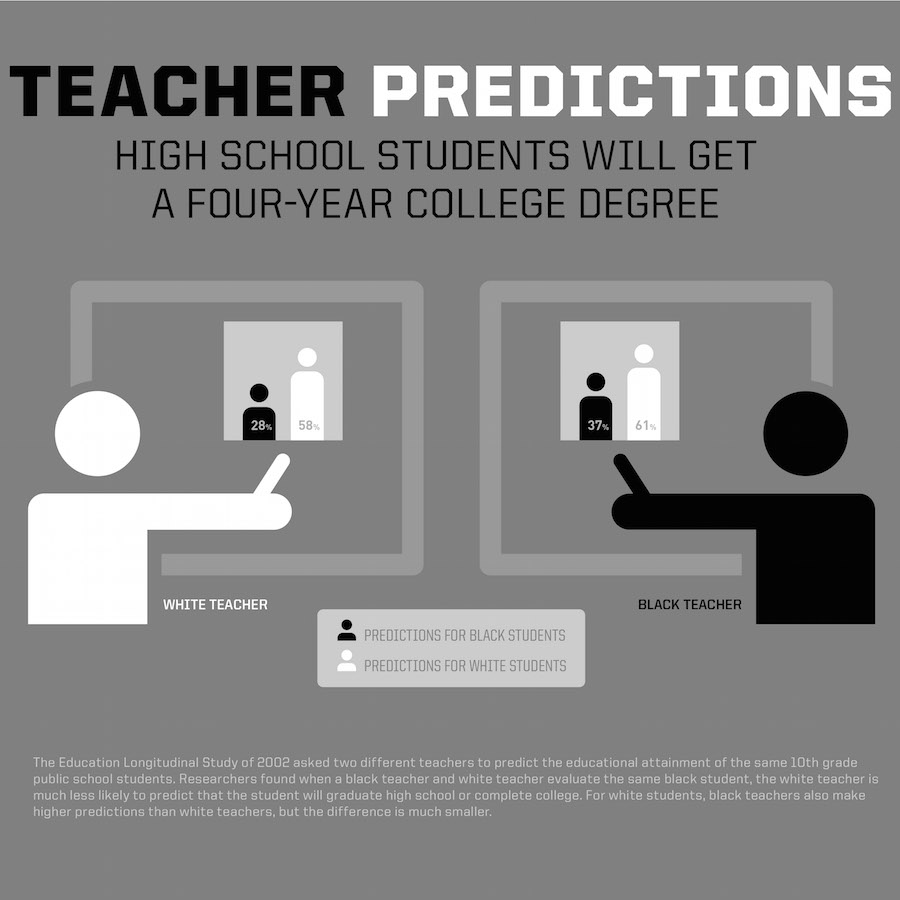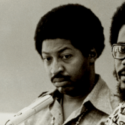A new study by researchers at Johns Hopkins University in Baltimore and American University in Washington, D.C., finds that Black and White teachers tend to have different expectations for the same student. The study found that White teachers expect significantly less of Black students than African American teachers. This effect is particularly apparent for Black male students.
A survey asked two different teachers, who each taught a particular student in either math or reading, to predict how far that one student would go in school. With White students, the ratings from both teachers tended to be the same. But with Black students, boys in particular, there were big differences — the White teachers had much lower expectations than Black teachers for how far the Black students would go in school.
Specifically, the study found that when a Black teacher and a White teacher evaluate the same Black student, the White teacher is about 30 percent less likely than the Black teacher to predict the student will complete a four-year college degree. White teachers are also almost 40 percent less likely than Black teachers to expect their Black students will graduate high school.

Nicholas Papageorge, an economist in the Krieger School of Arts and Sciences at Johns Hopkins University and a co-author of the study, stated that “what we find is that White teachers and Black teachers systematically disagree about the exact same student. One of them has to be wrong.”
The article, “Who Believes in Me? The Effect of Student–Teacher Demographic Match on Teacher Expectations,” was published on the website of thee journal Economics of Education Review. It may be accessed here.











Recently, I’ve heard about studies and events focused on barriers that affect Black students’ success in school. For example, here in Boston two senior women at the prestigious Boston Latin School, revealed the racism, hostility and indifference they’ve experienced. One of Justice Scalia’s last statements was that Black students may not benefit from attending the University of Texas and would get a more appropriate education at “slower schools”. I’ve known for some time how fortunate I was to get an excellent education in an “urban” public school system. More recently I’ve realized how unusual it was to be treated as a student who could learn even though I’m Black.
Sincerely,
Beverly Smith
A.B., University of Chicago
M.P.H., Yale University
Ed.M., Harvard University
(NOT “slow schools”)